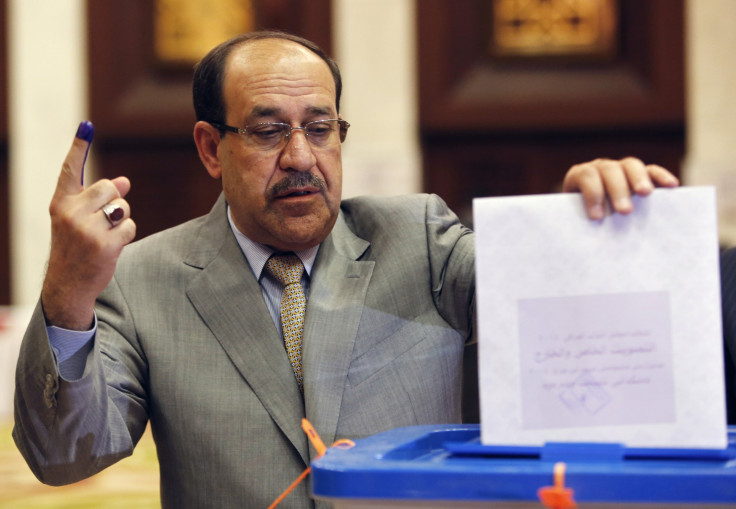Iraq Prime Minister Nouri al-Maliki Steps Down In Favor Of Haider al-Abadi And A Unified Government

Iraq’s Nouri al-Maliki "relinquished the post of prime minister," Thursday, according to Iraqi State TV. The announcement came four days after Iraqi President Fuad Masum nominated Haider al-Abadi to be Iraq’s new prime minister. Maliki said he was stepping down in favor of a more unified and stable Iraq and offered his support to Abadi, according to Iraqi state TV. His decision to resign, he said, was to avoid any Iraqi bloodshed.
BREAKING: Iraqi PM Maliki agrees to step down & accepts nomination of Haider al-Abadi as new PM. Speech shortly pic.twitter.com/OpmkWFPkpX
— Sajad Jiyad سجاد (@SajadJiyad) August 14, 2014The change in leadership came at a crucial time for the country now battling a surge of Sunni militants. Many, including the White House that had previously backed Maliki, have urged for an inclusive Iraqi government to put up a unified front against the Islamic State, formerly known as the Islamic State of Iraq and Syria (ISIS).
The Iraqi National Alliance, a coalition of Shia parties in Iraq, nominated Abadi for the job on Monday and he has since held meetings to form a governing majority inclusive of both Sunnis and Shiites to help minimize sectarian violence in the country. Maliki’s Shia Dawa party issued a statement Wednesday backing Abadi as the new Prime Minister and urged all political parties to support him.
Earlier in the week Maliki protested his replacement, saying he would pursue a legal case against the president, a case he has since decided to drop. In the April elections, Maliki’s party, the Dawa Party, won the biggest political block and as their leader he said he was rightfully entitled to the prime minister position. However, many in the country have blamed Maliki for Iraq’s deepening and deadly sectarian divide.
Abadi’s task to form a unified government will not be easy. Iraq’s political deadlock has long isolated the Iraqi Sunni population and some experts believe this allowed for the rise of insurgents like the Islamic State.
The Islamic State’s success is partially because they were up “against a house of cards, a state structure weakened by accumulated Sunni grievances,” the International Crisis Group has said.
U.S. Secretary of State John Kerry said on Tuesday that the U.S. would "fully support a new and inclusive Iraqi government.”
© Copyright IBTimes 2025. All rights reserved.






















